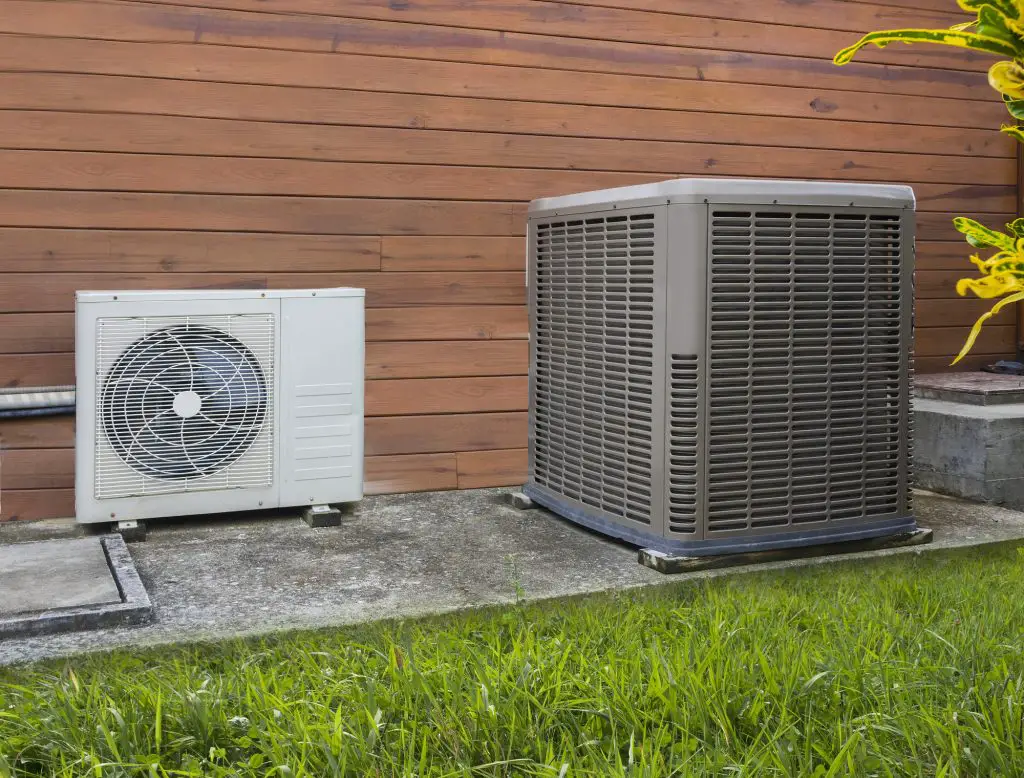
Table of Contents
Air Source Heat Pumps in Scotland
Heat Pumps Scotland have been huge advocates of heat pumps for a long time now. While ground source heat pumps offer greater efficiencies over air source heat pumps, the ground source solution is not for everyone, often due to space considerations or the required ground works for heat pumps. As a result, many people wrongly believe they are better off retaining their existing heating system but in actual fact, air source heat pumps can save you hundreds of pounds on your annual running costs with minimal installation disruption.
Air source heat pumps are the most straightforward type of heat pump to fit because they normally come as a unit that can easily be fitted to an existing building or new-build without the need for expensive groundworks or lots of additional piping to obtain the heat from the heat source.
The following video gives an excellent overview of this type of heat pump.
An air to air heat pump system can be extremely effective and also save you money. Some people worry about the noise generated by air source heat pumps, but we think they compare favourably with other similar appliances found commonly in the home.
Best Air Source Heat Pumps
The best air source heat pumps must be carefully selected from the industry’s leading manufacturers because of the superior quality of the products and the efficiency gains they offer. It’s possible for air source heat pumps to operate with a Co-Efficient of Performance (COP) of 3 to 1 meaning that for every kilowatt of electricity you pay for, you get 3 kilowatts of heat output. This makes it at least 3 times cheaper than a direct electric heating system.
What are Air Source Heat Pumps?
Air source heat pumps are renewable energy products which extract heat from the air to provide a total solution for domestic hot water heat which can be distributed via underfloor heating systems or radiators.
How do Air Source Heat Pumps work?
There are many heat pump misconceptions which have led to confusion as to how air source heat is produced, but in fact the way in which air source heat pumps work is actually very simple and not unlike any domestic refrigerator.
Overview
As air source heat pumps simply move energy rather than creating it by burning fossil fuels, they are extremely efficient. For every 3kW of heat moved into the house by the heating pump, only 1kW of electricity is consumed. This gives a perceived efficiency of performance by air source pumps of 300%, sometimes stated as a Co-efficient Of Performance (COP) of 3:1*.
Collecting the heat
The air source pump uses a fan to force air over a heat exchanger (simply a copper coil filled with refrigerant) to extract heat from the air.
The Evaporator
The purpose of the Evaporator within the air source heat pump is to take the air source heat obtained by the heat exchanger and boil the refrigerant (which boils at approximately -10˚C). The act of boiling turns the refrigerant into a vapour which is then transferred to the Compressor.
The Compressor
The Compressor does exactly what its name suggests; vapour is compressed in volume and as its volume reduces, its temperature increases to levels between 75˚C and 125˚C. The gas is then fed through a heat exchanger within the heating pump.
The Heat Exchanger
Forcing the hot gas across the cold water from the central heating system condenses the refrigerant back into a liquid. As it condenses its heat is passed into the heat exchanger which supplies the domestic hot water and powers the central heating system using the air source heat extracted originally.
The Expansion Valve
To complete the closed circuit of the air source heat pump, the only thing which needs to be done is reduce the pressure of the condensed liquid. This is achieved via the expansion valve.
The case for Air Source Heat Pumps
There are many advantages of heat pumps, not least the ability of air source heat pumps to extract heat from the surrounding air at temperatures as low as -25˚C (depending on the size of the heating pump installed). Other heating systems could well struggle at these lower temperatures but with air source pumps, you can be sure of a warm and comfortable environment for you and your family.
*It’s worth remembering that to get the most efficiency from your heat pump, it pays to make your home as well insulated as possible. Less well insulated homes may not achieve the highest COP levels. COP levels will also depend on the emitter system (radiators, etc) installed.